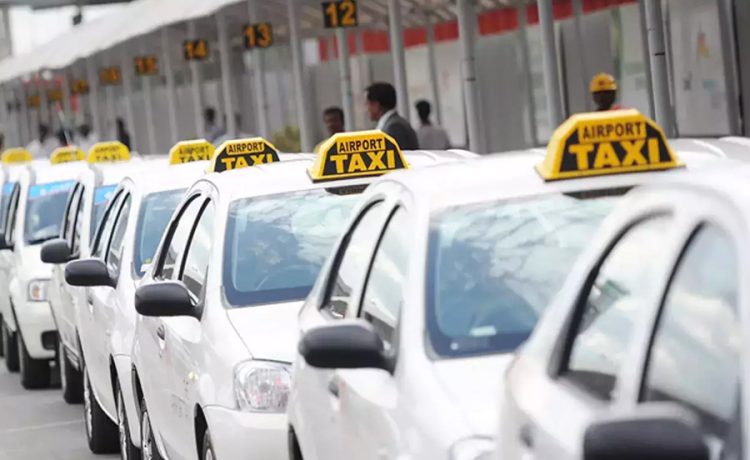Artificial intelligence (AI) is no longer a futuristic concept confined to science fiction; it has permeated industries across the board, revolutionising the way businesses operate. One sector where AI is making significant strides is the Affordable taxi York industry, particularly in fleet management. Gone are the days when dispatch systems relied solely on human intuition and basic algorithms. Today, AI is at the forefront of enhancing dispatch systems, streamlining operations, and improving route efficiency, ensuring that both passengers and drivers enjoy a seamless experience. Let’s dive into how this cutting-edge technology is reshaping taxi fleet management and what it means for the industry’s future.
Understanding the Basics: What is AI in Fleet Management?
AI in fleet management involves the use of advanced algorithms, machine learning, and real-time data processing to optimise how taxi fleets are operated. This includes predicting passenger demand, assigning vehicles more effectively, reducing fuel consumption, and minimising idle time for drivers. By integrating AI into dispatch systems and routing, taxi companies can enhance operational efficiency while offering faster and more reliable services to customers. Importantly for the British market, where cities are dense and road networks can be unpredictable, AI’s ability to process large volumes of data quickly makes it a game-changer.
Revolutionising Dispatch Systems
At the heart of any taxi operation is the dispatch system, responsible for connecting passengers with available drivers. Traditional systems often operate on a first-come, first-served basis or rely on basic proximity algorithms to assign jobs. These methods are functional but far from optimal. Enter AI-powered dispatch systems, which use complex algorithms to assign rides based on multiple factors, including traffic patterns, driver availability, and even predicted demand in different areas.
For example, AI can analyse historical data to identify hotspots where ride requests are likely to surge during specific times, such as rush hours or after major events like concerts or football matches. By proactively positioning drivers in these areas, companies can reduce wait times for passengers and ensure drivers maximise their earnings. Furthermore, AI can balance job distribution to avoid overburdening some drivers while others remain idle, creating a fairer and more efficient system.
Enhancing Route Efficiency
AI’s impact extends beyond dispatching to the actual journeys themselves. In the UK, where roadworks, congestion, and unpredictable weather often play havoc with travel plans, finding the fastest and most fuel-efficient route is critical. AI systems excel at processing real-time traffic data, enabling them to recommend alternative routes instantly when delays occur. This means that drivers can avoid bottlenecks, saving time and fuel, while passengers enjoy quicker journeys.
Moreover, AI can incorporate factors such as road closures, accidents, and even local events that may disrupt traffic. For instance, if there’s a major parade in London or a sporting event in Manchester, the system can reroute drivers to avoid affected areas. This level of adaptability is particularly beneficial in urban centres like Birmingham or Leeds, where navigating congested streets can be a daily challenge.
Predictive Maintenance for Fleet Vehicles
Another area where AI is proving invaluable is in vehicle maintenance. A well-maintained fleet is essential for ensuring safety and minimising downtime, and AI-powered predictive maintenance systems are helping taxi companies stay ahead of potential issues. These systems analyse data from vehicle sensors to detect anomalies, predict when components are likely to fail, and schedule maintenance proactively.
For example, AI might identify patterns in tyre wear, brake performance, or engine diagnostics that indicate an issue requiring attention. By addressing these problems before they escalate, companies can avoid costly repairs and reduce the risk of breakdowns that could disrupt services. Predictive maintenance also extends the lifespan of vehicles, ensuring that fleets remain reliable while cutting costs over the long term.
Passenger Experience: The AI Advantage
AI is not just about improving efficiency for taxi companies; it’s also transforming the passenger experience. One of the most noticeable changes is the accuracy of estimated arrival times (ETAs). Gone are the days of waiting indefinitely for a taxi that’s “just around the corner.” AI uses real-time traffic data and advanced predictive modelling to provide passengers with precise ETAs, building trust and reducing frustration.
Additionally, AI can personalise the booking experience. For instance, frequent passengers might receive tailored recommendations based on their past journeys, such as suggesting quicker routes or offering promotions for their favourite destinations. In the UK, where customer service expectations are high, these small touches can make a big difference in winning repeat business.
The Environmental Impact: Reducing Emissions with AI
In the context of the UK’s ambitious net-zero goals, the environmental benefits of AI in taxi fleet management cannot be overstated. By optimising routes and minimising idle time, AI reduces fuel consumption, lowering emissions across the fleet. Furthermore, many companies are now using AI to facilitate the integration of electric vehicles (EVs) into their operations.
AI systems can help manage the unique challenges associated with EVs, such as planning charging schedules and ensuring vehicles are deployed efficiently. For example, an AI-powered dispatch system might prioritise shorter trips for EVs nearing the end of their charge, reserving longer journeys for fully charged vehicles. This level of precision ensures that companies can maximise the utility of their EV fleets while supporting broader environmental objectives.
Challenges and ™Ethical Considerations
While the benefits of AI in taxi fleet management are undeniable, it’s important to acknowledge the challenges and ethical considerations. One key issue is data privacy. AI systems rely on vast amounts of data, including passenger locations, travel habits, and even payment details. Ensuring this data is handled securely and in compliance with regulations like the UK’s Data Protection Act is crucial to maintaining public trust.
Another concern is the potential displacement of workers, particularly in the context of autonomous vehicles. While full automation is still a way off, the gradual adoption of AI may lead to fears among drivers about job security. Taxi service York companies must navigate these changes carefully, finding ways to balance technological advancement with the need to support their workforce.
The Future of AI in the Taxi Industry
As AI technology continues to evolve, its role in taxi fleet management will only expand. Future innovations may include advanced customer analytics to predict demand even more accurately, or the integration of AI with other technologies like blockchain to enhance payment security and transparency. In the long term, we may even see fully autonomous taxi fleets operating in cities like London, offering a glimpse into the future of urban mobility.
For now, however, the focus is on using AI to create smarter, more efficient, and environmentally friendly taxi operations. By embracing these technologies, companies can position themselves at the forefront of a rapidly changing industry, delivering better services to passengers while staying competitive in a crowded market.
Conclusion
AI is undoubtedly reshaping the taxi industry, bringing unprecedented levels of efficiency, adaptability, and customer satisfaction to fleet management. From optimising dispatch systems to enhancing route efficiency and enabling predictive maintenance, this technology is revolutionising how taxi fleets operate in the UK and beyond. While challenges remain, the potential benefits far outweigh the risks, offering a roadmap for a smarter, greener, and more connected future. For passengers and operators alike, the rise of AI in fleet management is a journey worth taking.













